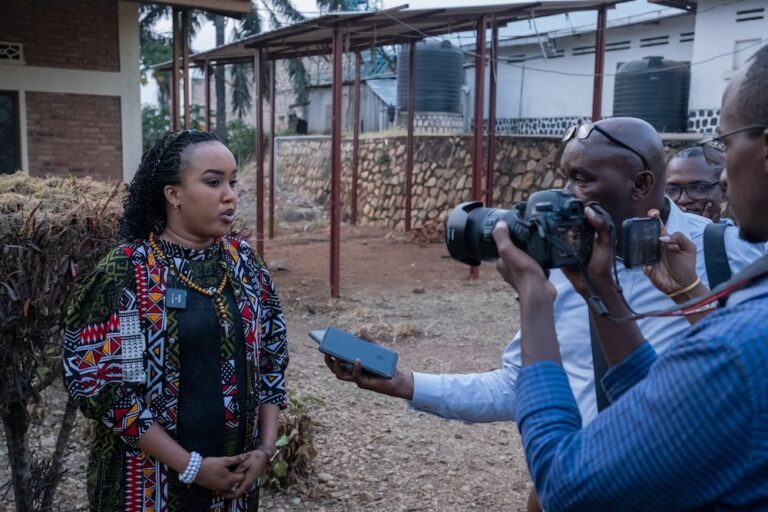Authoritarians use a variety of travel restrictions to make life harder for dissidents at home and in exile. Democratic countries that host exiles can do more to defend their freedom of movement and ensure their safety.
This statement was originally published on freedomhouse.org on 22 August 2024.
Authoritarian governments use a variety of restrictions on travel to make life harder for those living under their rule and for exiled dissidents. Democratic countries that host exiles can do more to defend their freedom of movement and ensure their safety.
In the aftermath of Venezuela’s flawed July 2024 election, in which President Nicolás Maduro was declared the winner of an unfair contest marred by a campaign of suppression and fraud targeting the opposition, Venezuelan authorities reportedly began to cancel the passports of activists and journalists, effectively trapping them in the country. Some Venezuelans residing abroad also lost the opportunity to renew travel documents, as the Maduro regime withdrew diplomats from several countries in response to their criticism of the stage-managed election. While much attention has been placed on the authorities’ violent crackdown on protests, the regime’s other moves highlight a less visible but increasingly common tactic of authoritarianism: arbitrary restrictions on the freedom of movement.
Freedom House’s report No Way In or Out: Authoritarian Controls on the Freedom of Movement, released today, finds that at least 55 governments have employed mobility controls in the last decade. These restrictions, which often accompany political imprisonment and other forms of transnational repression, are used to punish dissidents and their families. Far from being a relic of the Cold War, these tactics are a powerful present-day tool of authoritarianism.
Stopped in their tracks
Freedom House’s report finds that mobility controls take four main forms: citizenship revocation, control over travel documents, denial of consular services, and travel bans. While these tactics are often imposed arbitrarily, governments also weaponize the rule of law to further their repressive goals. For example, in February 2023, the Nicaraguan government expelled 222 political prisoners, forcing them onto a flight to the United States. While they were in the air, the government approved an emergency constitutional reform allowing “traitors to the homeland” to be stripped of their citizenship and property.
Several regimes exercise control over official documents, like passports, to try to lure dissidents into returning to repressive countries. Belarusian president Alyaksandr Lukashenka’s September 2023 decree, which prohibited consulates from renewing passports, left thousands of Belarusians living abroad in precarity: in need of valid passports but knowing full well returning home would mean potential imprisonment. Many Saudi Arabian dissidents interviewed by Freedom House for the report shared that they were barred from renewing their documents from abroad; going home would mean returning to a regime that physically mistreats political prisoners and applies the death penalty to a wide range of crimes.
The arbitrariness of these tactics often leaves people with little opportunity for redress. The Indian government, for example, has revoked Overseas Citizenship of India status from those deemed to violate national interests. This status offers residency and travel rights for foreigners of Indian origin, descendants of citizens, and spouses of citizens. Show-cause letters sent to those affected by these revocations give people only a small window of time, sometimes just days, to refute vague accusations and maintain their status.
Far-reaching consequences
Beyond the physical limitations that mobility controls impose, affected individuals also endure prolonged separation from their loved ones, the derailment of their careers and advocacy, and psychological trauma. For those unable to return to their home country and see their families, the constant worry for their loved ones’ health and safety, along with the uncertainty surrounding their potential reunification, is immensely damaging. That can be compounded when relatives are themselves subjected to mobility controls, imposed by governments aiming to further punish targeted individuals. A Rwandan interviewee explained: “The emotional part is so severe and it doesn’t go away… People tell you that time heals, but this doesn’t actually work like that.”
Members of diaspora communities are discouraged from continuing their activism once they see the intense repression peers and their family members face. Many interviewees shared a similar sentiment: that public demonstrations, vocal dissent, and other activities within the diaspora have declined because people no longer feel safe, even outside of their home countries. Several said that they have stopped applying for jobs, funding opportunities, and scholarships overseas due to uncertainty over their ability to travel. Many continue their activism while bearing the weight of this repression, but the silence caused by mobility controls is nevertheless reverberating among diaspora communities.
A right, not a privilege
As authoritarian regimes increasingly use mobility controls, democratic governments and civil society organizations must speak out on the damaging effects of these restrictions and work to reverse or mitigate them. Emphasizing the need for unconditional releases of political prisoners is imperative when dealing with governments like Saudi Arabia’s, which often impose travel bans as a condition of release. Providing travel documents that can be used in lieu of national passports will aid individuals who have fled political repression and are unable to renew their documents, as is the case for the many Belarusians now living abroad.
Some mobility restrictions might appear subtle when compared to other tools of repression, like harassment, physical assault, or rendition, but they should not be met with subtle responses. Mobility controls inflict considerable harm on exiles who are targeted by their home regimes and on people who are kept within those regimes’ borders. Those suffering that harm need active and unwavering support so that they can continue their activism—and enjoy a greater sense of freedom and safety for themselves.



